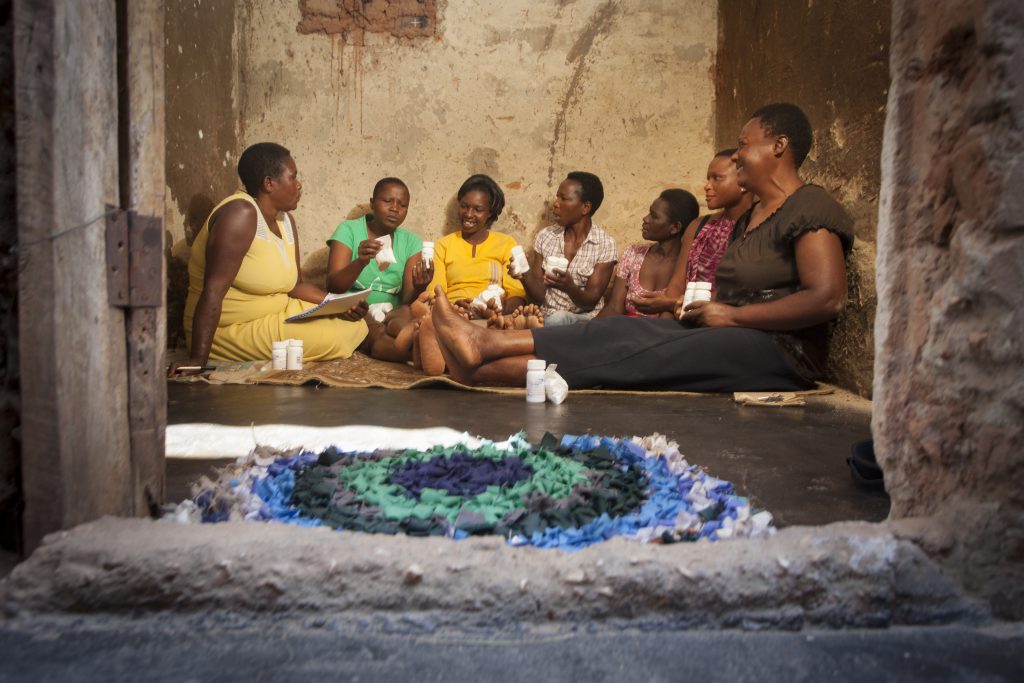By Chelsea Elkins

In a time of increased barriers, disruptions, and restrictions due to the COVID-19 pandemic, the International Training and Education Center for Health (I-TECH) and its network partners have implemented new approaches and adapted existing programs to support continued access to antiretroviral therapy (ART).
As a result of the pandemic, many organizations and health systems have had to shift to offering virtual care, which allows ART initiation and other HIV services to persist while minimizing patients’ risk of exposure to COVID-19. However, not all patients have access to the technology that makes virtual services possible, and additional approaches are needed to support ART treatment access during this time.
“Globally, the pandemic has generated innovative responses from communities and health systems that are striving to keep people connected to care,” says Dr. Pamela Collins, I-TECH Executive Director. “One challenge is to recognize how (or when) some adaptations increase disparities in access. We’ve learned that the right combinations of technological and no-tech solutions can also be innovative if they help provide the care that’s needed.”
One way I-TECH has helped to provide innovative care during the pandemic is by centering solutions within the affected communities themselves. A few of the community-oriented approaches that the I-TECH network has implemented include decentralized ART centers, community outreach, home delivery, community adherence refill groups (CARGs), and multi-month dispensing (MMD) of antiretroviral (ARV) medication.
Decentralized ART Refill Sites and Community Outreach
Decentralized refill sites have been an essential strategy during lockdown restrictions for I-TECH’s network partners because they allow ART to be distributed at more convenient locations, minimizing travel and treatment interruptions. Some programs have also started providing mobile outreach to improve ART access during the pandemic, at times even providing doorstep delivery to those who are unable to go to a clinic or refill center.
I-TECH’s network partner in India, the UW International Training & Education Centre for Health Private Limited (I-TECH India) launched the ARTMitra helpline in Mumbai, an outreach effort designed to map the location of unreachable PLHIV and aid in planning decentralized ART refill sites. SMS messages were delivered to 13,103 PLHIV who had missed appointments during the pandemic, resulting in the identification of 42 decentralized ART refill centers in Mumbai in 2020. A similar helpline was launched in five districts of the state of Mizoram in partnership with the State AIDS Control Society. In total, I-TECH India, in close coordination with government partners in the PEPFAR states in Northeast India and in Mumbai, has ensured uninterrupted ART delivery through 145 decentralized ART refill sites.
Through outreach efforts, clients were notified about how they could access medication, and which decentralized ART refill site they should visit. Additionally, ART home delivery was provided to 255 PLHIV living in Mumbai who were unable to pick up their medication.
Thank you for calling and informing me about the availability of medicine at the nearby ART Centre, as I had no idea whom to contact and how to collect medicine.
—an ARTMitra client in Mumbai
I-TECH network partner the Zimbabwe Technical Assistance, Training and Education Center for Health (Zim-TTECH) has also utilized community outreach to support PLHIV during the pandemic. Zim-TTECH has supported the Zimbabwe Partnership to Accelerate AIDS Control (ZimPAAC) consortium—along with PEPFAR partners, the U.S. Centers for Disease Control and Prevention (CDC) and in close collaboration with national efforts—to provide mobile HIV care, including prevention services and integrated services at ART events. In the Harare District, 8,257 clients were supplied ART during outreach events from 28 March through 17 July 2021.
Community Adherence Refill Groups and Multi-Month ART Dispensing
Through CARGs, a community of PLHIV access treatment more easily by sending a representative to receive ARVs for the entire group. The I-TECH network implements CARGs in a number of countries, using the person-centered approach to simplify HIV care and reduce the need for in-person services. This approach is often used in tandem with MMD, allowing a group to access multiple months of medication at a time.
While ARVs have traditionally been prescribed monthly, MMD allows patients to pick up medication for 2 to 6 months and reduces traditional barriers, such as access to transportation and taking time off work, as well as barriers specific to COVID-19, such as lockdown restrictions and limited capacity of health care facilities. I-TECH and its network partners have scaled up MMD in many programs during the COVID-19 pandemic, effectively minimizing the number of in-person visits and encouraging ART adherence.
In response to COVID-19 and in partnership with CDC, the Ministry of Health and Social Services (MoHSS) in Namibia introduced a new MMD policy in April 2020 for eligible ART patients, making more people eligible for this service than ever before. In addition to policy support, I-TECH Namibia is engaged in technical support to the national HIV/AIDS program through clinical mentors who work in more than half of Namibia’s health districts. This national engagement has contributed to a rapid increase in the number of eligible ART patients who now receive between 2 to 6 months’ supply of ARVs at a time.
‘’As the number of ART patients on MMD increased, waiting areas in Namibia’s health facilities have rapidly decongested, enhancing COVID-19 infection prevention and control measures,” says Dr. Norbert Forster, I-TECH Namibia’s Country Director. “At the same time, our HIV clinicians now have more time to focus their care on patient engagement and on enhancing viral load suppression and other interventions.”